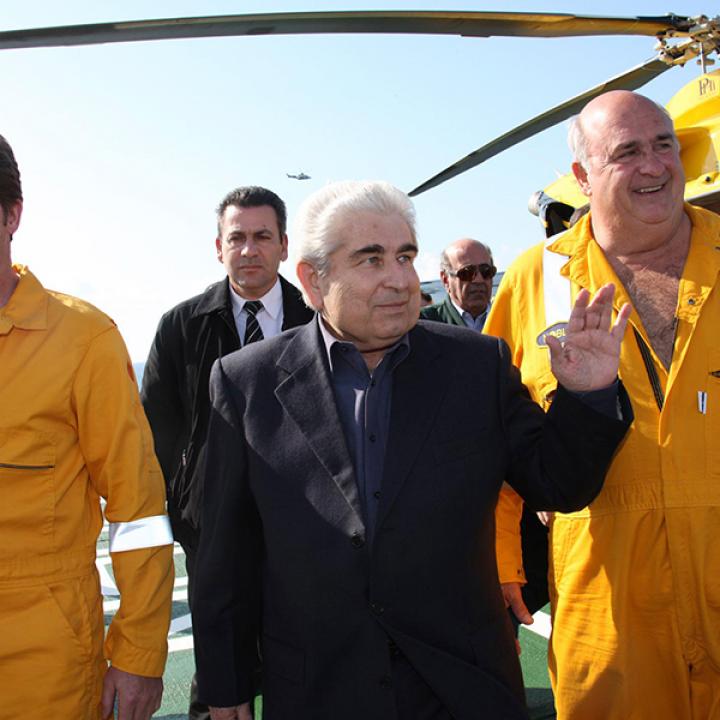

U.S.-brokered efforts to untangle the maritime knot between the three countries could boost natural gas exploration.
Talks in Beirut today between Lebanese president Michel Suleiman and Cypriot president Demetris Christofias may be a turning point in the offshore border muddle that has vexed relations between the two countries for several years. The issues are complicated, however, and Suleiman offered only cautious words after the meeting: "We have given the issue of the gas and oil available in our water top priority and agreed to increase cooperation [on formulating] principles and sound means that would allow us to extract this resource."
The problem stems from two recent maritime border agreements negotiated by Cyprus, with Lebanon in 2007 and with Israel in 2010. The agreements give shape to the countries' exclusive economic zones -- offshore areas where they can claim sovereignty over any oil and natural gas reserves. Recent discoveries in waters off Israel and the southern coast of Cyprus will provide both nations with enough gas to fulfill domestic demand for decades, as well as a surplus for export. And Lebanon, plagued by a weak economy and energy shortages, is soon to permit drilling off its coast.
Under the UN Convention on the Law of the Sea (UNCLOS), a state is allowed to claim waters extending 200 nautical miles from its coast for economic use. When another country lies less than 400 nautical miles away (as Cyprus does in relation to Lebanon and Israel), governments are expected to negotiate a mutually acceptable line. This is also the case for countries with adjacent coastlines like Israel and Lebanon, though no talks have taken place between the two given their longstanding lack of diplomatic relations, currently exacerbated by the Hizballah-led government in Beirut. (Israel has not signed UNCLOS but accepts most of its principles.)
The immediate diplomatic challenge is that Cyprus and Lebanon agreed on a maritime border that reaches south to a spot designated as Point 1; Cyprus then negotiated a line with Israel that begins at Point 1 and stretches further south. Yet UNCLOS rules for such a situation suggest that Cyprus's maritime borders with Israel and Lebanon should intersect at a point equidistant from the three countries, which would be around eleven miles south of Point 1. The result is that a triangular piece of sea spanning over 300 square miles is in contention.
So far, none of the Israeli gas discoveries have been in or close to the disputed area, despite Hizballah's claims to the contrary. But this could change as exploration continues. U.S. diplomacy has produced a plan that appears to split the difference between Israeli and Lebanese claims, though the details have not been revealed. Apparently, the lack of relations between the two countries need not impede agreement if both make mutual and simultaneous declarations to the UN regarding their maritime lines. Yet neither government has shown enthusiasm for Washington's proposal.
The trip by Christofias -- a Russian-educated left-winger who is not standing for reelection next month -- may have been motivated in part by concern for his legacy. Cyprus is in a financial mess and has yet to agree on a European Union bailout. The island usually avoids Middle East entanglements, but a Hizballah operative with dual Lebanese-Swedish nationality has just gone on trial in Cyprus for allegedly targeting Israeli tourists there. Given the other challenges surrounding Eastern Mediterranean gas -- including Turkey's refusal to recognize Cyprus and its condemnation of the Cyprus-Israel maritime accord -- Washington is no doubt hoping that today's Beirut meeting did no harm.
Simon Henderson is the Baker fellow and director of the Gulf and Energy Policy Program at The Washington Institute.



